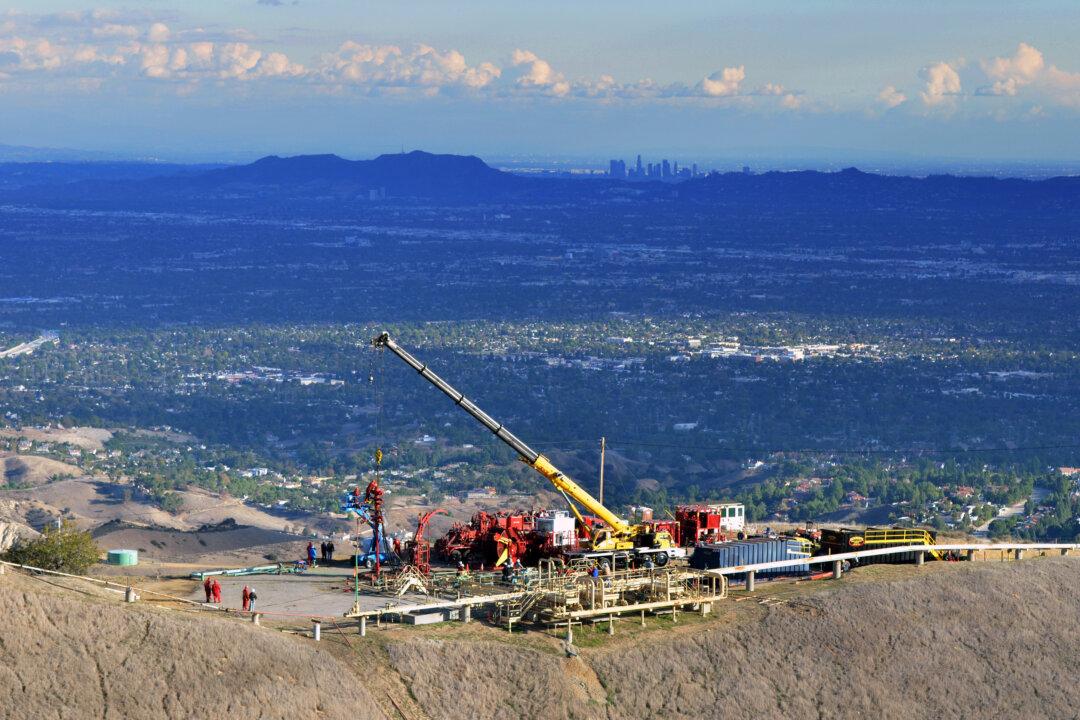SAN FRANCISCO—California Gov. Jerry Brown declared a state of emergency on Wednesday, Jan. 6, over a massive natural-gas leak that has been spewing fumes into a Los Angeles neighborhood for months.
In a statement, Brown said he acted based on the requests of local residents in the community of Porter Ranch and the “prolonged and continuing” nature of the gas blowout at the underground storage facility.
The well, owned by Southern California Gas Co., has been gushing up to 1,200 tons of methane daily, along with other gases. The leak was first reported in October.
The utility is paying to relocate thousands of households after residents complained that the gases were making them sick. They say they have suffered nosebleeds, nausea, headaches, and other ailments.
Los Angeles County and the Los Angeles school board already have declared the crisis an emergency, moving students out of two schools in the neighborhood.





